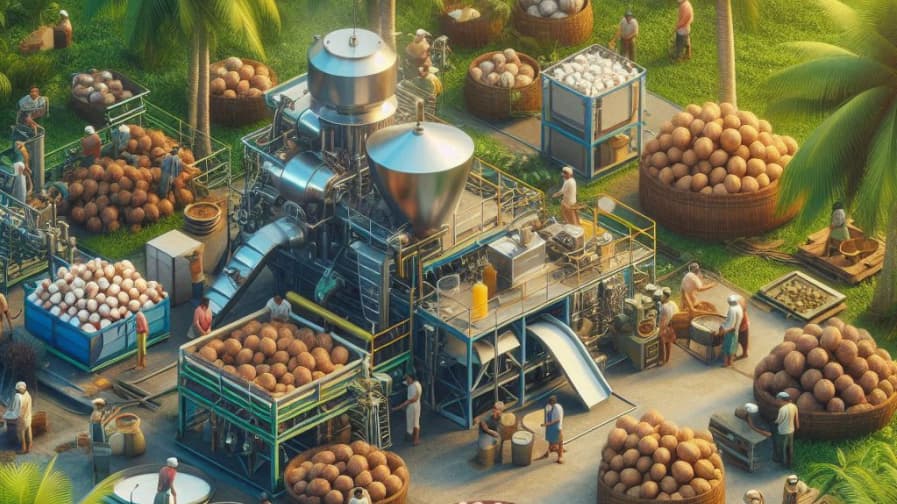The Vietnam coconut industry is thriving, with increasing investments in coconut processing factories and a sharp rise in Vietnam coconut exports. With demand growing, how can businesses capitalize on this market?
The Rise of Vietnam’s Coconut Industry
In 2024, Vietnam’s coconut exports reached approximately $1.1 billion, encompassing products like food items, cosmetics, handicrafts, and fresh coconuts. This success stems from increased investments in deep processing and favorable trade agreements with major markets such as the U.S. and China. Notably, over 100 enterprises are now engaged in coconut trade, with more than 60% focusing on fresh coconuts. This surge reflects a growing recognition of the coconut sector’s potential.
Strategies for Sustainable Development
To ensure stability, the industry is shifting focus from exporting raw materials to emphasizing deep-processed products. The Vietnam Coconut Association is actively seeking investments to establish advanced processing facilities, aiming to enhance product quality and competitiveness in the global market. But how can these initiatives benefit local farmers and businesses?
Supporting Farmers and Enterprises
Efforts are underway to assist coconut farmers and enterprises in accessing credit through specialized support programs. Pilot projects in five Mekong Delta provinces aim to benefit over 10,000 farming households and more than 300 cooperative purchasing points. Such initiatives are designed to strengthen the industry’s foundation and ensure equitable growth.
Enhancing Processing Capabilities
Beyond farming, there’s a concerted effort to support mechanical engineering firms that produce machinery for coconut processing. By compiling a comprehensive list of these companies, the association aims to foster the development of advanced equipment, thereby boosting the efficiency and quality of processed coconut products. This approach not only adds value to the products but also creates opportunities for technological innovation within the country.
The Global Context
Internationally, countries like Indonesia are imposing export taxes on raw coconut materials and may ban such exports entirely. This scenario positions Vietnam as a more attractive source for coconut products, presenting a unique opportunity to capture a larger share of the global market. How can Vietnam leverage this advantage to solidify its standing in the international arena?
Conclusion
Vietnam’s coconut industry stands at a pivotal juncture, with immense potential for growth through strategic investments in deep processing and comprehensive support for stakeholders. By addressing existing challenges and capitalizing on global market dynamics, Vietnam can establish itself as a leading exporter of high-quality coconut products. The question remains: Are we ready to seize these opportunities and drive the industry toward a sustainable and prosperous future?






